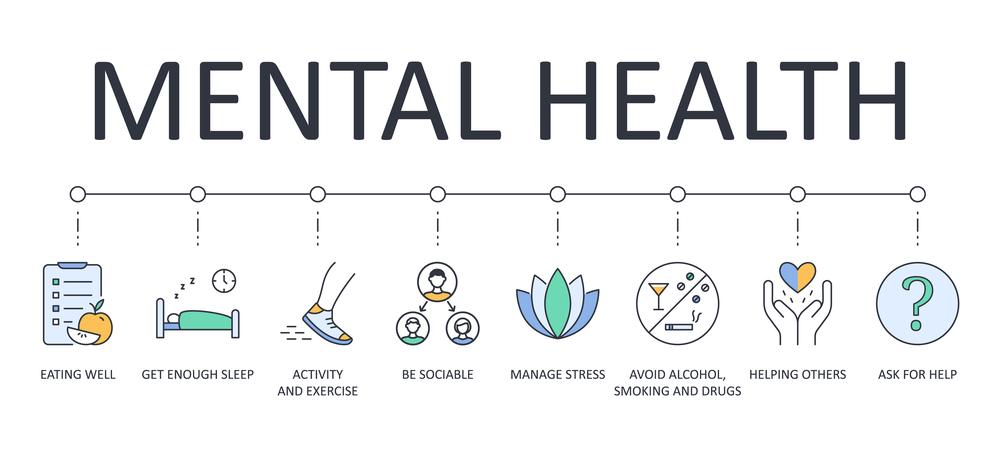As a BetterHelp affiliate, we receive compensation from BetterHelp if you purchase products or services through the links provided
Long-term sickness can have profound implications on the individual experiencing it, the workplace environment, and overall productivity. Understanding the dynamics of this impact is vital to creating a supportive and accommodating workplace.
This document aims to explore the various facets of the influence of long-term illness on work, including the effect on team dynamics, productivity, and the mental health of other employees. We will also delve into strategies for managing these challenges, promoting a culture of empathy and understanding while maintaining operational efficiency.
The Impact on Team Dynamics
Long-term sickness of a team member can destabilize the team dynamics significantly. The absence of a team member can cause an increased workload on others, often leading to stress and dissatisfaction. Additionally, it could result in weakened communication, impacting team synergy and collaboration efforts. On the other hand, these challenges can be channeled into opportunities for growth. Teams can develop resilience in adversity and nurture their problem-solving skills.
They can also foster adaptability, learning to redistribute responsibilities or switch roles when necessary. Depending on your specific condition, you can easily find a book or guide that provides tips and strategies for navigating long-term sickness in the workplace. Also, acknowledging and addressing the impact of long-term sickness on team dynamics is crucial in maintaining a positive and cohesive work culture.
Effect on Productivity
Long-term employee illness can have a direct impact on productivity. The sudden vacancy can result in delays, missed targets, and a drop in overall productivity. This can be particularly pronounced in smaller teams where each member’s contribution is crucial. However, organizations can implement strategies to minimize these impacts. Cross-training employees to handle different roles and responsibilities can ensure continuity in the face of sudden absences. Moreover, leveraging technology for automating tasks can also help maintain productivity.
Remember that a work culture that prioritizes well-being and encourages open communication can also positively impact productivity in the long run. Employees are more likely to be engaged, motivated, and productive by creating an environment where they feel supported and can care for their health.
Not to mention, managing the impact of long-term sickness on productivity also includes addressing any potential discrimination or stigma towards employees with chronic illnesses. This can involve promoting diversity and inclusivity in the workplace and providing accommodations for those with disabilities.
Impact on the Mental Health of Other Employees
 The long-term sickness of a colleague can also take a toll on the mental health of other employees. Witnessing a fellow employee’s struggle might lead to anxiety, stress, or feelings of helplessness. The increased workload might also contribute to employee burnout. Organizations should prioritize employee mental health and provide adequate support. This could be through counseling services, mental health days off, or regular check-ins to discuss work-related concerns.
The long-term sickness of a colleague can also take a toll on the mental health of other employees. Witnessing a fellow employee’s struggle might lead to anxiety, stress, or feelings of helplessness. The increased workload might also contribute to employee burnout. Organizations should prioritize employee mental health and provide adequate support. This could be through counseling services, mental health days off, or regular check-ins to discuss work-related concerns.
Also, promoting a culture of empathy and understanding can go a long way in alleviating employees’ distress. Encouraging open communication, showing appreciation for employees’ efforts, and offering flexible work arrangements can help create a supportive work environment.
Managing the Challenges of Long-term Sickness
Managing the challenges of long-term sickness in the workplace requires a comprehensive and empathetic approach. Employers must be prepared to make accommodations, provide support, and communicate effectively with the affected employee and the rest of the team. It’s also essential to have contingency plans in place. These could involve hiring temporary replacements, redistributing work, or offering flexible work arrangements to the affected employee upon their return.
Organizations can also consider providing resources or support for employees dealing with long-term illnesses. This could include access to mental health services, flexible work arrangements, and extended leave options.
Promoting a Culture of Empathy and Understanding
Promoting a culture of empathy and understanding is paramount in managing long-term sickness in the workplace. Colleagues should be encouraged to support each other, emphasizing the importance of mental health and well-being. Such a culture not only aids in managing the situation at hand but also contributes to overall employee satisfaction. Encouraging open dialogue about illness and its impacts can help reduce stigma and foster a more inclusive workplace environment.
In conclusion, handling long-term sickness in the workplace is a multi-faceted challenge, touching on team dynamics, productivity, and mental health. It requires thoughtful management strategies and a supportive work culture. By fostering a culture of understanding, empathy, and open communication, organizations can mitigate the negative impacts, support their employees effectively, and maintain productivity.
Employers must proactively provide resources, establish contingency plans, and create a flexible work environment. By doing so, they not only navigate the challenges of long-term illness but also contribute to a more inclusive, understanding, and resilient workplace.
This site contains affiliate links to products. We will receive a commission for purchases made through these links.



